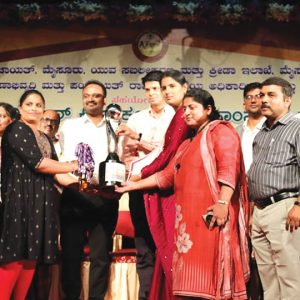Renowned English Poet Thomas Gray (1716-1771) wrote in 1742 in the proverbial line Where ignorance is bliss, it is folly to be wise as part of the poem “Ode on a Distant Prospect of Eton College” with the message that lack of knowledge results in happiness; it is more comfortable not to know certain things. However, it is rewarding in many circumstances to be knowledgeable before events unfold with consequences that are hurting. The expression Forewarned is forearmed, originating as a Latin proverb, translated into English during early 1500s, with the message that if one knows about a problem or situation in advance, one will be able to deal with it when one needs to, has its value in case of diseases that cause much suffering and death. Knowledge in advance enables one to be prepared as in “Let me know when he is in town so I can take the phone off the hook,” an example with its light-hearted but worthy element. But for the knowledge of the connect between afflictions, their underlying causes, symptoms and remedies, the suffering and fatalities would be beyond one’s imagination, particularly in the country hosting many diseases taking a heavy toll of lives of people annually.
Infrastructure, services and professionals in different branches of medical practice continue to be concentrated in urban spaces, more so in mega cities, while the country’s rural parts hosting populations steeped in both ignorance about diseases and economic disadvantage take the brunt of misery. The phenomenon of undiagnosed diseases is alarmingly more glaring among the rustics than urbanites.
While some diseases are marked by symptoms that are within the grasp of even lay people, other afflictions are known to remain unnoticed until it is beyond the point of treating to avoid fatality. Tuberculosis is known to be the leading villain of the piece as it were in the country marked by belated diagnosis, if not remaining undiagnosed in an alarmingly large number of cases. Another serious affliction remaining undiagnosed is haemophilia in nearly 80 % of the afflicted population in the land, according to a report in a section of the press this week, quoting doctors. The lifelong disorder that prevents blood from clotting caused by the inability of the body to produce the anti-haemophilic factor (AHF) in the required quantity has reportedly no known cure. However, rustics are known to prevent bleeding from wounds by applying the juice of the leaves from the plant Tridax procumbens (known in Kannada as Adike soppinagida or jayanthi gida), growing copiously in the wild all over the country.
The other feature of extraordinary talents in various fields, including academics remaining undiscovered applies to families bugged by poverty even in urban spaces. They blossom only because of being discovered by chance as in the case of mathematics wizard Srinivasa Ramanujan who was discovered by a British Port Trust Officer first and later by G.H. Hardy of Cambridge University.








Recent Comments